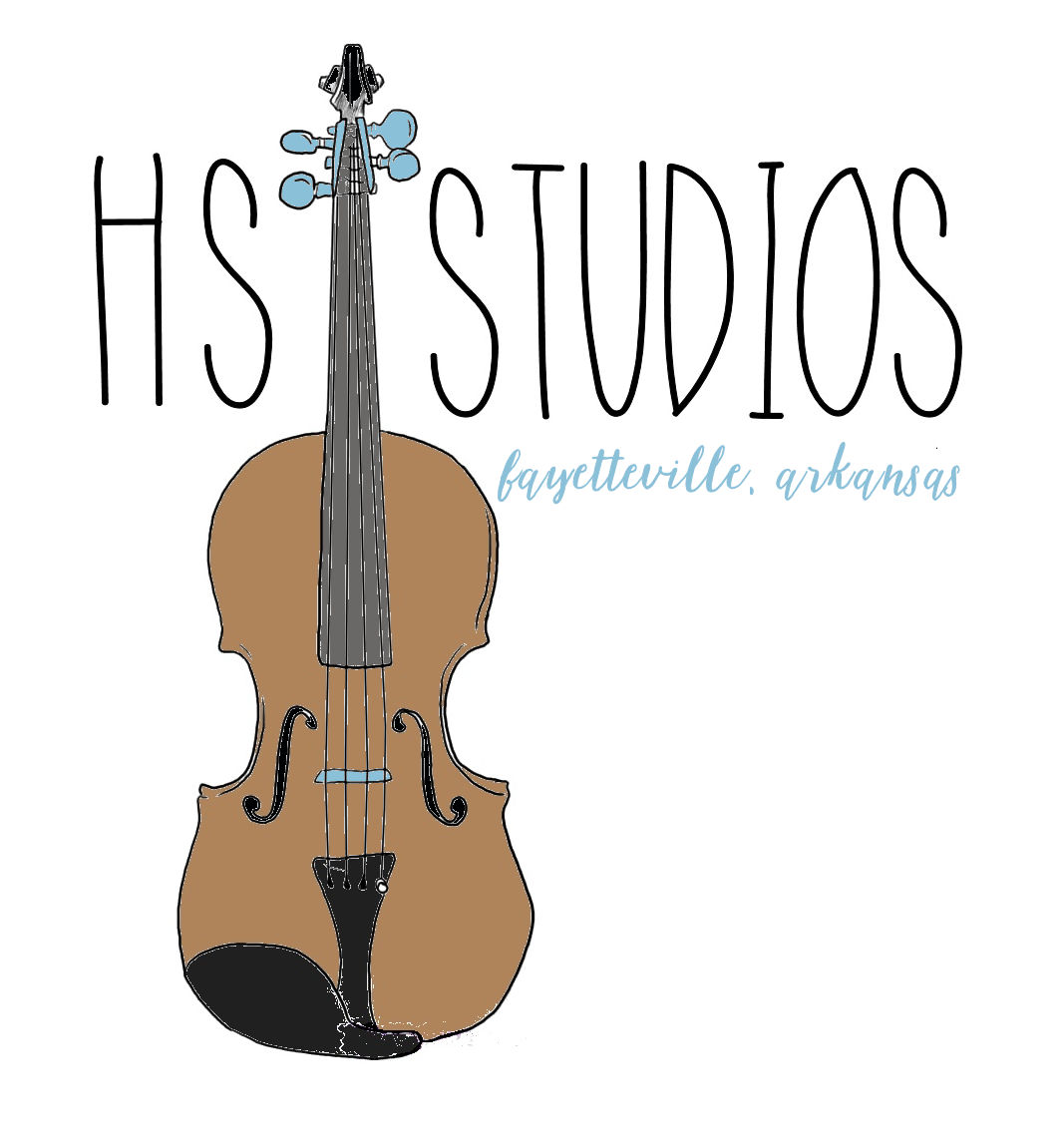Holly Smardo
photo credit Clayton Taylor Photography
Holly Smardo has enjoyed many years of successful Suzuki violin teaching, not only in Arkansas, but also in Kansas City, Washington D.C., and Illinois. Many of her students have successful careers as performers across the country.
A graduate of the University of Missouri-Kansas City Conservatory of Music, Ms. Smardo later earned a master’s degree in Suzuki pedagogy and performance from Southern Illinois University in Edwardsville. Her principal teachers include Tiberius Klausner, Kent Perry, and John Kendall. She has served as concertmaster of the North Arkansas Symphony Orchestra and continues to perform throughout the NWA community.
The Suzuki Association of the Americas has acknowledged Holly’s commitment to teaching by presenting her with the Certificate of Achievement, as well as the prestigious Teacher Trainer certification. These awards are presented to individuals who demonstrate a commitment to life-long learning and excellence in teaching. She has received extensive training with many master teachers including Carol Smith, John Kendall, Alice Joy Lewis, Ronda Cole, Mark Mutter, Stevie Sandven, Kathy Wood, James Mauer, Cathy Lee, Joan Rooney, and Carol Tarr.
Holly is an advocate for creating greater access to quality music program for all children. In addition to a private teaching studio, she also served as the Director of Orchestras at Washington Junior High School in the Bentonville School District. Her 8th-grade orchestra won the honorable Sweepstakes Award at the Worlds of Fun Music Festival placing first out of 80+ bands and orchestras. In addition, she was recognized with the “Extra Mile Award” given monthly to an employee in the Bentonville School District.
Currently, Holly lives in Fayetteville, Arkansas with her husband Buzz. They have built a beautiful teaching space to serve students and families who value music education and understand the power of music to shape the life of a child.
Their grown children, Carissa and Craig are life-long musicians and students of the Suzuki Method whose paths have led them to pursue professions in healthcare. Carissa is a dentist at River Dental in Fayetteville and Craig is a medical urology resident in Jackson, Mississippi.
photo credit Clayton Taylor Photography
Suzuki Method
In 1960, a group of American musicians visited Dr. Shinichi Suzuki in Matsumoto, Japan and the course of string education was changed in our country. By applying the basic principles of language learning to teaching young violinists, Dr. Shinichi developed a method also known as the “Mother Tongue Approach.”
Parental Involvement
Suzuki marveled that “All Japanese children speak Japanese.” With this realization came Suzuki’s vision that musical talent could also be developed, and that talent was not inborn. As your child’s parent, you have the power to shape and nurture his/her talent. Suzuki parents attend lessons with the child and serve as “practice partners” during the week. The Suzuki Triangle (Child + Parent + Teacher) is a key component of a Suzuki student’s training.
Early Beginning
The early years are crucial for developing mental processes and muscle coordination. Listening to music should begin at birth; formal training may begin at age three or four, but it is never too late to become a musician
Listening
When a child is born, he/she is immersed in new sounds including the language spoken by his/her family. Dr. Suzuki was fascinated that “All Japanese children speak Japanese.” Although Japanese is a very complex language, all children speak their native language. When a child is also exposed to great music from an early age, he/she will internalize musical sounds that can be reproduced on an instrument. Suzuki students learn to play by ear before learning to read music which emulates language learning, since children also learn to speak before learning to read the printed page.
Repetition
Constant repetition is essential to playing an instrument or to learning a new language. Children do not learn to speak a word or to play a piece of music and then discard it. Instead, they learn new words or repertoire and add them to what has already been mastered.
Nurtured by Love
As with language, the child’s effort to learn an instrument should be met with sincere praise and encouragement. Each child learns at his/her own rate, building on small steps so that each one can be mastered. Children are also encouraged to support each other’s efforts, fostering an attitude of generosity and cooperation.
Learning with Other Children
In addition to private lessons, children learn to play with others during group lessons. Group lessons are a key component of the Suzuki Method which provides a sense of community. Students learn mutual respect, leadership, teamwork, ensemble skills, performance skill, technical skills, and much more!
Standard Repertoire
Pieces in the Suzuki repertoire are designed to address specific technical problems to be learned in the context of the music rather than through dry technical exercises. The graded repertoire is a work of genius! Suzuki teachers receive extensive training concerning the purpose of each piece, the skills that must be taught and how to teach both the parent and the students from a loving perspective.
The Suzuki Legacy
Shinichi Suzuki was a violinist, educator, philosopher and humanitarian. Born in 1898, he studied violin in Japan for some years before going to Germany in the 1920s for further study. After the end of World War II, Dr. Suzuki devoted his life to the development of the method he calls Talent Education.
Suzuki based his approach on the belief that “Musical ability is not an inborn talent but an ability which can be developed. Any child who is properly trained can develop musical ability, just as all children develop the ability to speak their mother tongue. The potential of every child is unlimited.”
Dr. Suzuki’s goal was not simply to develop professional musicians, but to nurture loving human beings and help develop each child’s character through the study of music.
The Suzuki Twinkler is a copyrighted publication of the Suzuki Association of the Americas, Inc. © 1998.
Reprinted from http://suzukiassociation.org/teachers/twinkler/

